

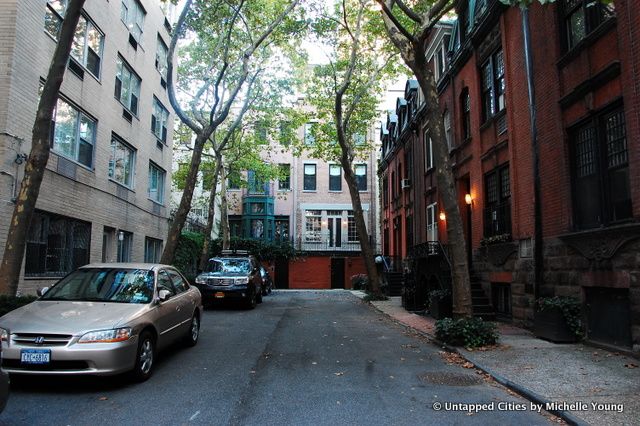
Henderson Place Historic District on the Upper East Side
You’re familiar with the famous historic districts in Manhattan: Greenwich Village, Chelsea, Riverside Drive and more. But did you know some historic districts are less than one block?
1. Sniffen Court Historic District
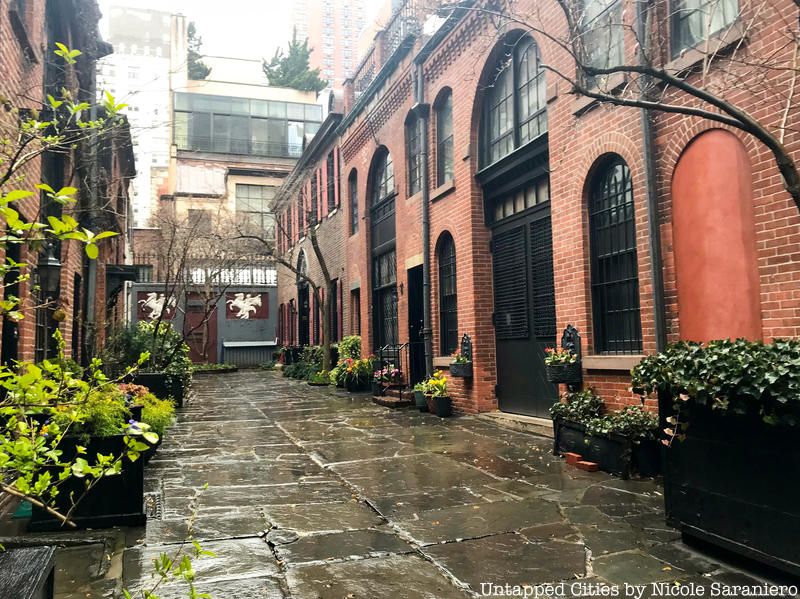
Sniffen Court is located on 36th Street between 3rd Avenue and Lexington Avenue in Murray Hill. It may be the most “hidden” on our list because there’s an iron gate in front of the dead-end alley. Inside, there are 10 carriage houses, all built by John Sniffen between 1863 and 1864, later converted into apartments.

2. Hardenbergh/Rhindelander Historic District
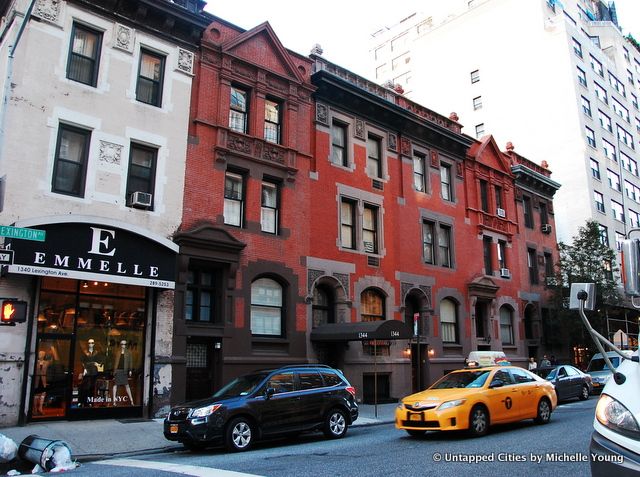
This little historic district is really just a corner at the northwest corner of 89th Street and Lexington Avenue. In addition to this set of 6 buildings along Lexington Avenue, the district includes one narrow townhouse at 121 E. 89th Street. According to Ephemeral New York, Henry Hardenbergh, who designed the homes, “also designed the Dakota, the original Waldorf-Astoria on 34th Street.”
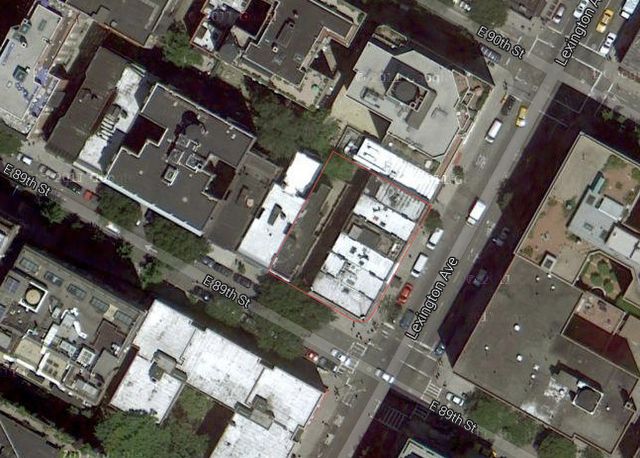
3. Henderson Place Historic District
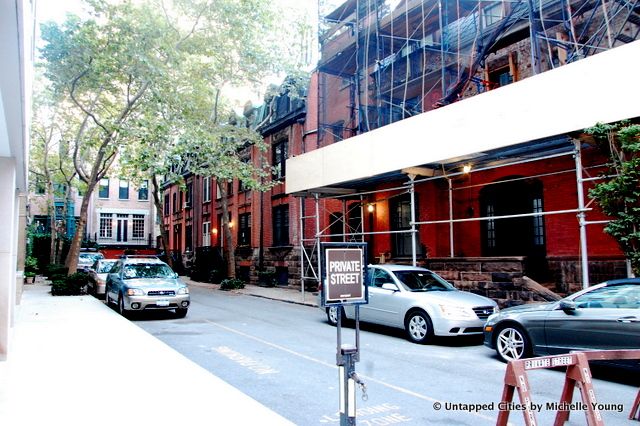
Henderson Place is on 87th Street between East End Avenue and York Avenue. On one side it’s a private road, noted clearly on a permanent sign and 3 road blocks (which also request no dogs). The buildings that remain today, in the Queen Anne architectural style, were once part of a larger development of 32 houses, eight which has been demolished. The houses along East End Avenue are also included in the historic district. Some famous residents have included the Duke and Duchess of Richelieu and Horace Green.
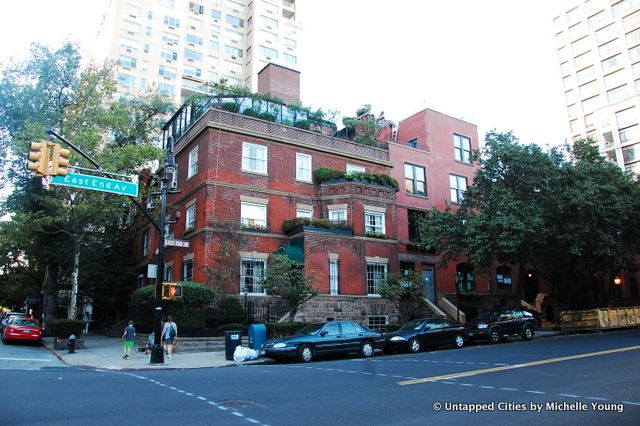
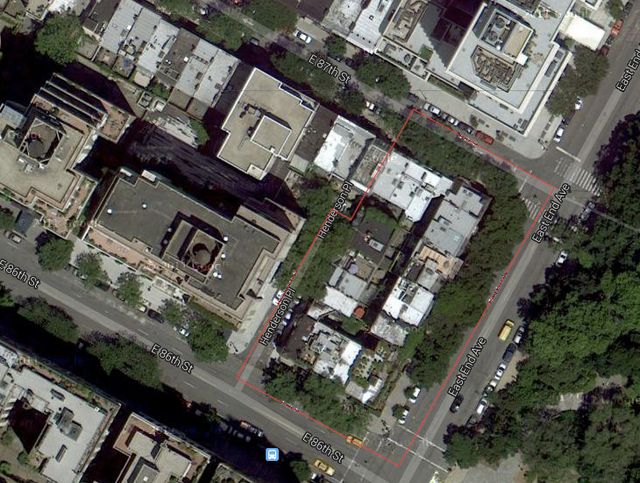
4. West 71st Street Historic District
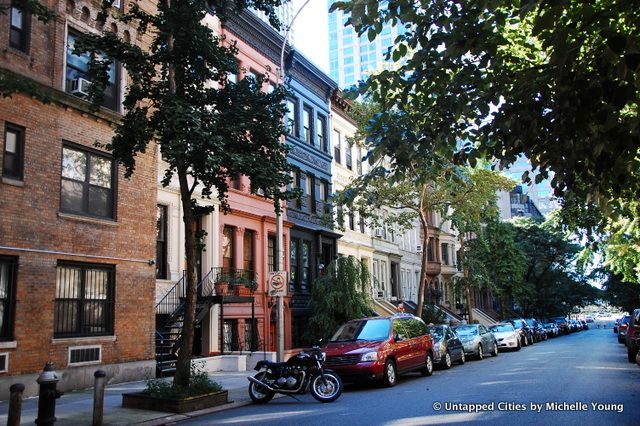
Only a portion of the block on 71st Street between West End and Riverside Boulevard is part of the historic district. Over the course of three years, six groups of houses were built in the 1890s in the Renaissance Revival style. Each group is a harmonious unit but differentiated from the other groups by material and design. 71st Street also dead ends here, with a view onto Riverside Boulevard. It was once a cul-de-sac with wall, behind which were railroad tracks.
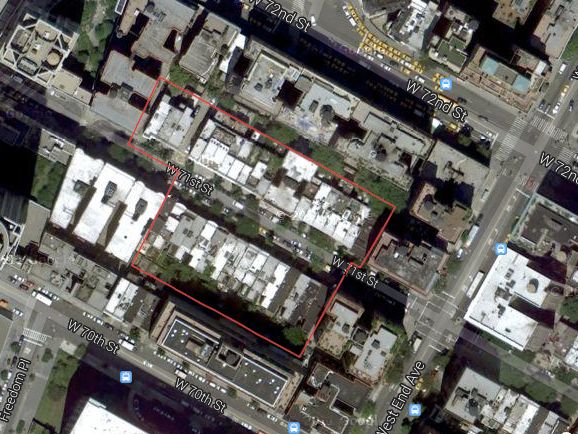
5. Turtle Bay Gardens Historic District

Turtle Bay Gardens circa 1920. Photo via Library of Congress
This unique development was the brainchild of Charlotte Martin, a descendant of the Dutch settlers. She brought 20 run down houses in 1919 and remodeled them, creating a shared garden esplanade between them. A copy of the fountain in the Villa Medici sits in this garden. Charlotte’s personal house had a grand ballroom with 22 foot high ceilings and a private garden.
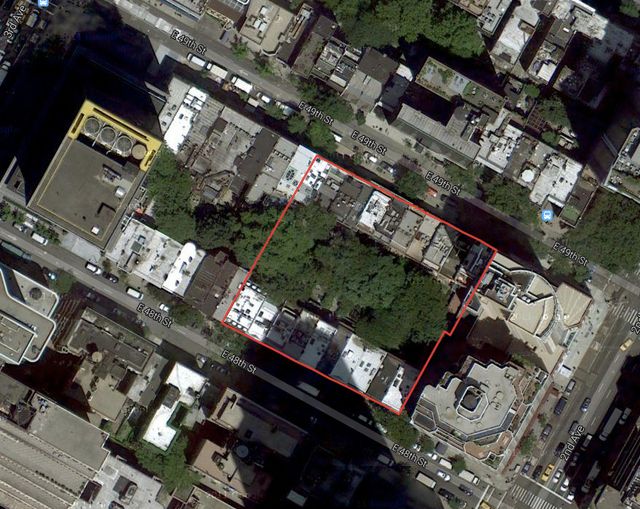
6. MacDougal Sullivan Gardens Historic District
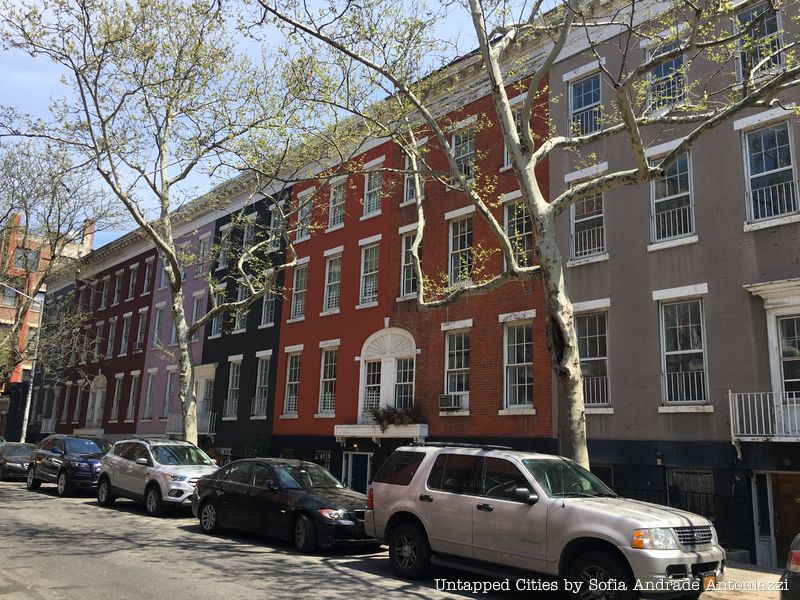
According to the Landmarks Preservation Commission report, “the visitor, seeing this small historic district, a few blocks south of Washington Square Park, for the first time, would find that he was transported back to a mid-Nineteenth century street scene.” Shown in panorama, as captured above, the consistent facades of MacDougal Sullivan Gardens are painted in contrasting but harmonious colors, hiding a communal garden behind that runs almost the length of the block.
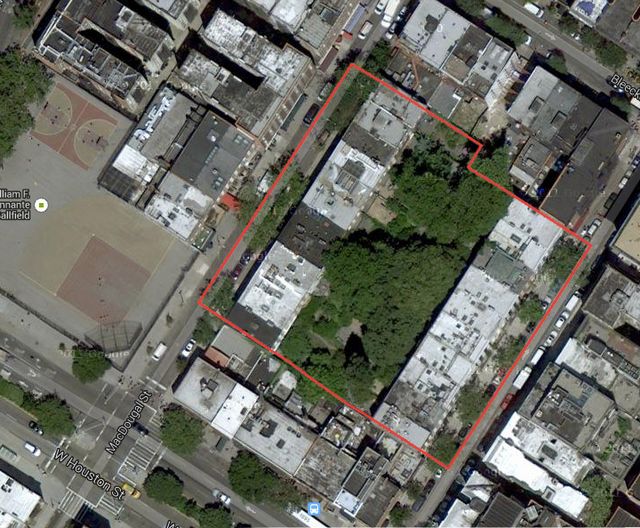
The LPC report contends that the survival of this district owes is owed to the “policies of of the Low Family, which owned it for 125 years, and the far-sighted philosophies of a real estate developer in the period after World War I. Both ran counter to prevailing real estate policies of the time.” The gardens were joined together by William Sloane Coffin, whose real estate company purchased the block in 1920.
7. Lamartine Place Historic District
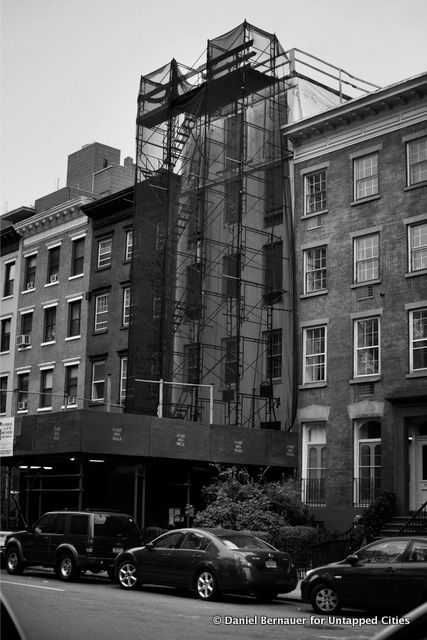
Lamartine Place Historic District is located on West 29th Street between 8th and 9th Avenue, notable for its connection with the Underground Railroad. In particular, the Abigail Hopper Gibbons House at 339 West 29th Street is Manhattan’s last known Underground Railroad junction. The Gibbons family were abolitionists even before the Civil War and opened their home to others sympathetic to the cause. It is reported that William Lloyd Garrison dined there with an escaping slave.
During the Draft Riots of 1863, the house was attacked and burned. Two of the Gibbons daughters managed to escape through the roof onto adjacent properties and finally into a carriage on 9th Avenue. The current owner has been trying to build a penthouse atop the building for the last five years, facing staunch protests. The latest news is that he’ll have to get Landmarks approval retroactively.
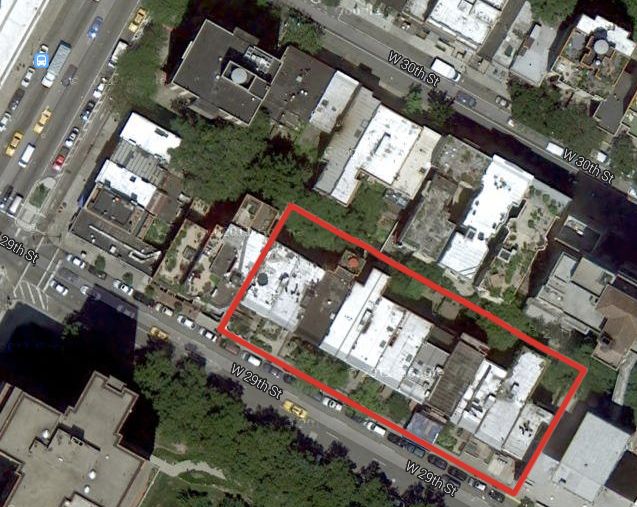
8. East 17th Street Irving Place
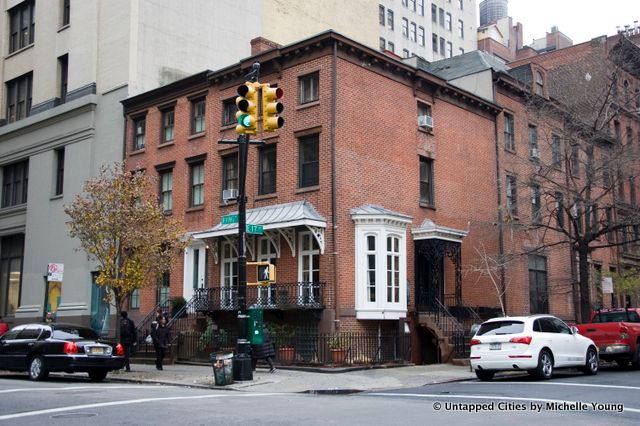
Legend has it that Washington Irving lived at 122 E. 17th Street but despite a plaque with this information, there is no evidence that he lived there. The Epoch Times writes that the rumor may have been the ploy of an enterprising woman who ran a salon there between 1892 and 1911. Despite this historical inaccuracy, the neighborhood “portrays through its residents an important aspect of New York City’s social and cultural history during the sceond half of the nineteenth century and in the years prior to the depression,” according to the Landmarks Preservation Commission.
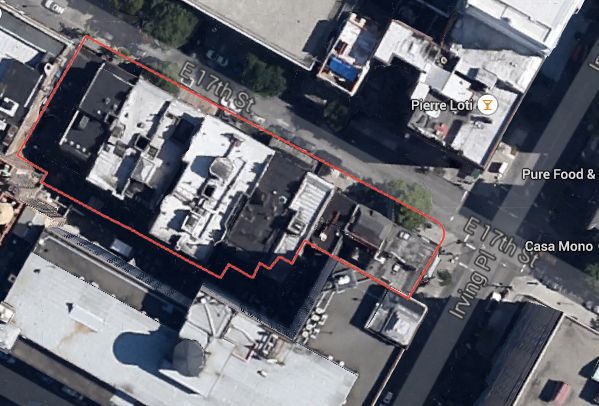
Get in touch with the author @untappedmich. All maps shown in this article made by Untapped Cities using Google Maps and Landmarks Preservation Commission maps.


